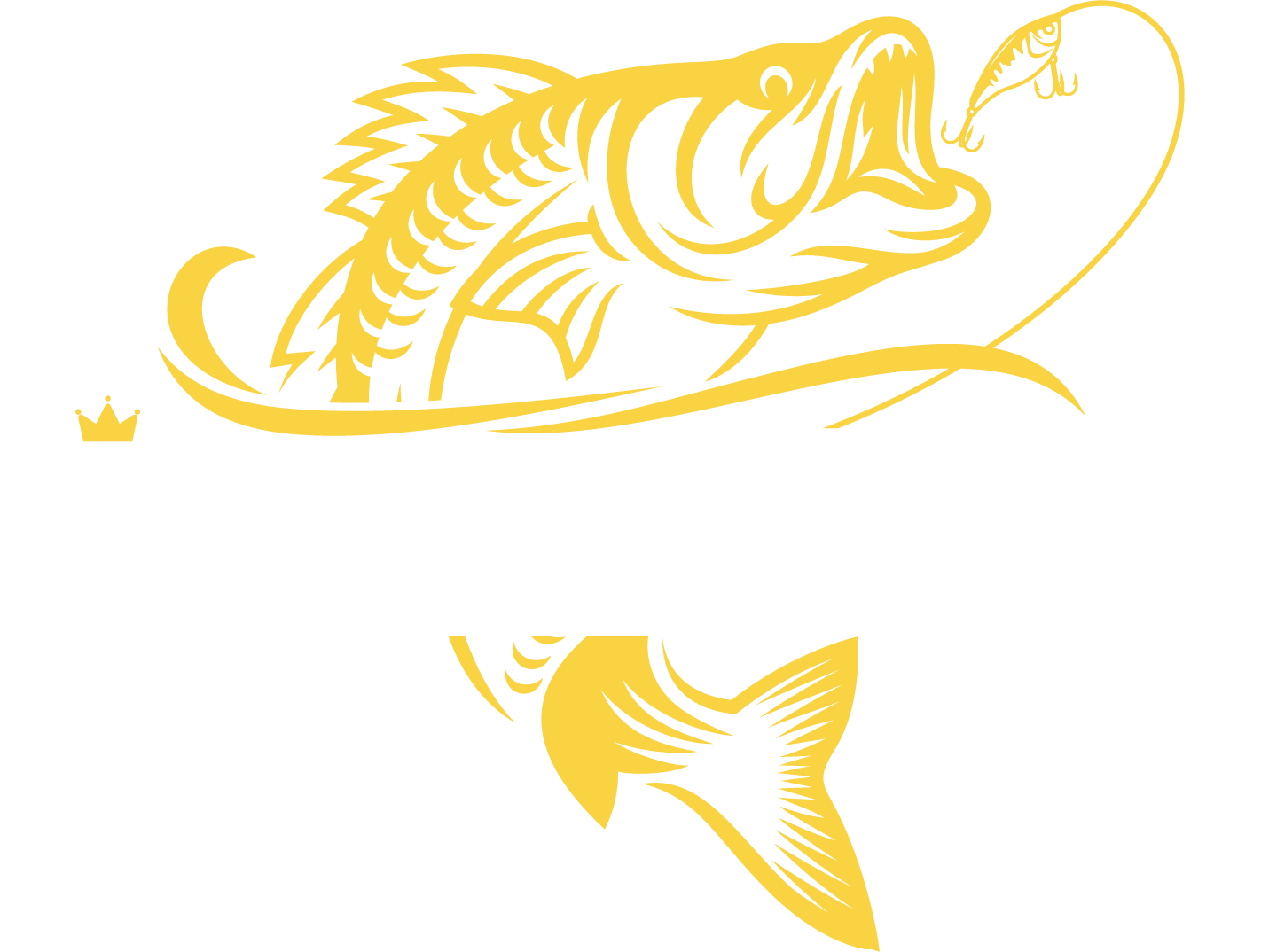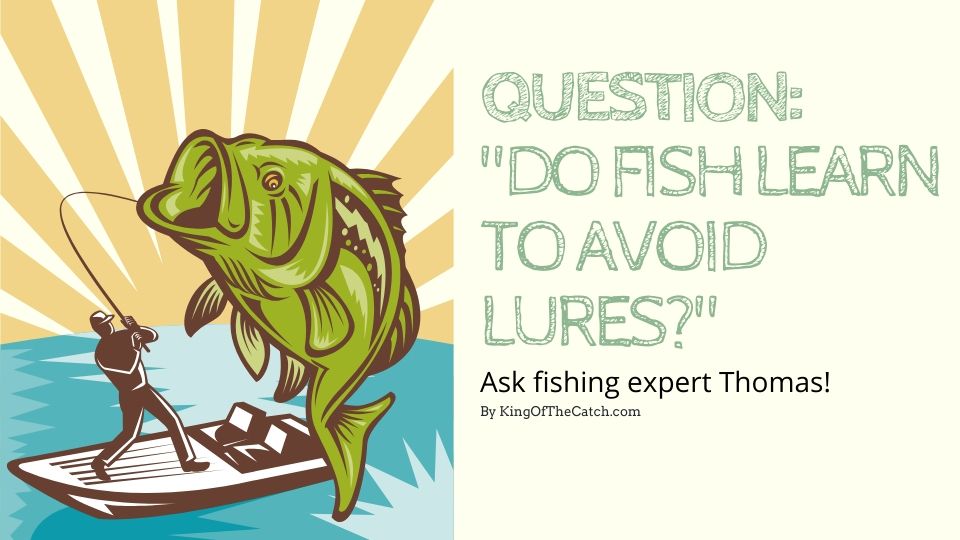Imagine this: you have set a fishing spree during the right season, the right weather, the right time of day, the right lure, and the right spot on a lake. But your luck on catching baitfish seems to have gone out as you look at your trophy bucket and see nothing in there!
There should be more fish biting your bait because you came just last week and caught a bushel full. I have also faced this issue and wondered if it is possible that the fish are now aware of my activities and avoiding my lures.
Today, I am here to help you with what I know about this unfavorable situation. 🙂
Do fish learn to avoid lures?
Question: Hi, I am a 36-year-old from Sydney, Australia. You can call me Sam. I want to know if using the same bait or luring method, or going to the same fishing spot will condition the fish into knowing my fishing patterns and steering clear of me. Do fish learn to avoid lures? Is there anything I can do to reverse it?
Answer: Hello Sam. I am Thomas from “Ask Thomas,” and I can help you with the questions you have put forward today. I have come across many people who have been asking the same question but never getting a straight answer. In this article, I will help you learn more about fish and their behavior.
There are a few things you should know about the nature of fish or any living creature with a brain. Most living creatures can learn specific patterns and remember them so that they can use it later to gain an advantage.
We all know that fish have an excellent memory as compared to other similar life forms. So the answer to “do fish learn to avoid lures” is a yes for the most part.
Fish conditioning and how it happens
Let us take the example of a kid and some candies. Tell the child to do a chore or a good deed and reward them with candy once they accomplish the task. Repeat this process, and they will learn that good deeds and successful completion of chores will get them what they want, that is, the candy.
We shall use the same logic but different approaches for fish and lures. If you have ever caught a fish using a specific lure, but it escapes, or you set it free, the chances are that this same fish will remember its experiences and encounters and probably avoid it next time.
If you keep repeating this process, other fish will remember what your lure looked like at first. As a result, these fish will learn not to bite if they see anything that looks like your lure, whether it is really just a bait or an actual prey. We call this process of associating fish with the negative side of lures as “fish conditioning.”
Situations where fish conditioning may happen
I want to inform you about the situations or actions that we do, which might lead to the conditioning of fish. This section of the answer to “do fish learn to avoid lures” will help you know what you are doing wrong and how you can prevent fish conditioning from happening:
Catching and releasing fish
Catching and releasing fish is something many people do to pass their time if they are not planning to consume their catch later. The fish that you catch and free later will remember what the lure you used to catch it. If you use the same lure again, the fish may not bite the second time.
In catch and release fisheries, many people complain that they cannot get catches where more people flock. This phenomenon might have its explanation behind fish conditioning. The fish now know that people gather around certain spots only to catch them, so they will not go to those areas. Even if they go, they will hardly bite the lure they are so familiar with now.
Fish setting themselves free from your hook
There are times when you do not tie a knot properly. In such cases, the fish may bite your lure but be able to loosen the knot but wriggling around and set itself free. If this happens one too many times, this fish will remember what it did that brought it to that undesirable situation.
You are not the only fisher who makes this mistake. There are tens of thousands of other fishers who make the same mistake and allow the fish to escape from their hooks. The math here is simple. For every loose hook or escape, a fish will avoid the lure next time you cast your line.
Natural selection
What I mean by natural selection is that if you keep fishing at a certain spot every time you plan a fishing trip, you might have already caught the vigorous and driven ones in the pond, lake, or river. Once the aggressive ones are gone, the rest are less likely to bite your lure because they are naturally more cautious and careful than the first batch.
This point does not necessarily mean that your technique or choice of lure is wrong. It only means that the lure is not as effective on the rest of the fish as it was on the adventurous fish population.
Ways to reduce lure shyness or fish conditioning
Now that you know why the fish might not be biting your lure, let us get into how you can make them bite again. The following tips will increase your chances of catching a fish even after they learn to avoid your lure:
Give your movements a switch and your lures a tighter knot
I advise you to change up your movements while tugging your fishing rod and line. A change in movement will attract fish even if you might be using the same lure or fishing in the same spot. This point is not a proven fact, but it will not hurt your chances of catching a fish.
Make sure your knot tying the lure to your line is not loose, so that the fish will not be able to escape once it bites and hooks on to your line.
Try a new lure
Different types of lures suit different fish and different occasions. According to studies, a fish will not recognize different types of lures if you can interchange them from time to time. Even if they are the same type of lure, consider making an old switcheroo with the colors. You can spraypaint your lure and apply epoxy in the end.
If you are unsure about the color, I suggest you pick a more natural color that you will find in the fish’s natural habitat. If not, you can try the Spike-It lure paint that can glow in the dark. There is a high chance you might attract some unknowing fish with this trick.
You can quickly and effortlessly upgrade your lure with a feather or some fur if you do not have time or money to buy a new lure. Fly tying is an exciting hobby that you can start with the Muskoka fly tying starter kit.
Adding rattles are also an excellent choice to change things up. The fish that you could not fool earlier with your regular lure might take a liking to the new sound your bait is making. Its curiosity might take over and end up biting. Glass Rattles are one of the most effective rattles for jigs in the market right now.
Switch fishing spots
Going to the same spot, again and again, will only teach the fish you try to capture in that spot. Through the process of conditioning, they will learn nothing good comes out of going to that particular spot where you carry out your fishing activities.
You do not have to switch spots daily, but it might help if you try to move from one place to another once in a while. If you know a spot where many people fish, you can try your luck, but chances are, there might not be any more fish in that area.

Niels Thomas is a wildlife expert and fishing fanatic that works with major fishing brands like Deeper Sonar, Abu Garcia, Berkley, PENN, BassPro and Pure Fishing. Through sharing the best fishing tips, tricks, gear reviews, locations and much more he hopes to inspire fishing fanatics to start their own journey towards becoming the King of the Catch!

